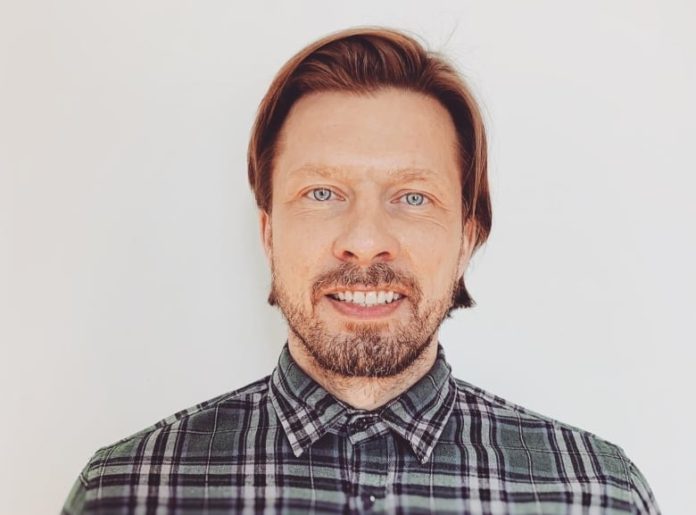This First Person article is the experience of Alexandre Fafard, a men’s health advocate based in Montreal. For more information about CBC’s First Person stories, please see the FAQ.
It’s quite obvious now, our community is once again in danger. As we, gay/bi/trans/two-spirit/queer men, are still picking ourselves up from the AIDS pandemic, now comes chemsex — the use of drugs, often crystal meth, in a sexual context.
While the intention is to experience pleasure and comfort, we are ending up most often disempowered, in pain and lost. Yet again, we are hurting.
I myself am a recovering crystal meth user. I started using it eight years ago, when I was 35 years old. It took me less than a year to realize my addiction was affecting me physically, mentally and spiritually. I thought all I had to do was to stop — and I tried. But nothing worked. And at the same time, I was losing everything around me.
At that time, I was already seeing a life coach, hoping I could become “a better person.” Little did I know, that was the least of my problems. I wasn’t really ready to address the addiction head-on. So instead, she pointed out the plaguing shame beneath every word that was coming out of my mouth.
“Read the book,” she said, referencing The Gifts of Imperfection by Brenée Brown, knowing very well that my bruised ego wouldn’t let me tackle these deeper issues on my own. I read the book, secretly, and everything changed. I realized how shame had been weighing on me all my life. And from that very moment, I started owning my past as a drug user, as a gay man, as a person living with HIV, as a simple human being with struggles.
Shame was moved aside to make room to some genuine self worth. And soon enough, I started asking for help.
The first challenge was surviving my potent addictions, to the substance but also to sex with men. These men were all I had left, and I couldn’t seem to let them go — thinking that if I quit using drugs, even just for a moment, I would also have to quit them.
How was I supposed to get better if recovery implied cutting myself from the only humans that really understood me?

On one of those days where I thought I had lost the battle, my father, still today one of my greatest allies, sat beside me, powerless yet loving, and told me in a very simple way: “You need to find more people to help you. Find your people, Alex.”
My father had shown up for his son, hugged me, and then left, with no certainty of finding me alive the next day. I understood at that moment the battle was mine and mine alone. I wasn’t responsible for the addiction, but I surely was the only one responsible for turning things around for myself. The day after, I started looking for my people — people like me, who were bravely addressing their addiction.
I found them in a support group, Crystal Meth Anonymous. There, I found the same boys I was partying with, with whom I could continue to feel close and intimate, but in another way. In a sober way.
I froze in the staircase heading down to my first support group meeting. I thought of opting out, fearful and weak, not having enough courage to enter the room on my own. As I was bailing out, a group member, Alain S., appeared in front of me and extended his hand to welcome me in.
“Just sit and listen. You are OK here,” he said.
I sat down and quietly listened, voiceless. People were sharing their stories, and they were all genuinely nice to me. I felt safe instantly. I had found my people. I had found community. I had found hope.
Let’s Go9:25Ça prend un village is an advocacy and awareness-raising project for those overcoming addiction
Overcoming an addiction is often the challenge of a lifetime — with the best of help. So when you don’t have access to the right support, where do you go? That’s what a team of now-sober men set out to change. Coming up on Let’s Go, we speak with the co-founder of Ça prend un village. 9:25
Seven years later, I reflect on this condition, the addiction to sex and crystal meth, as a symptom of a greater illness — the lack of authentic connection within our own community. As part of my recovery, I am making a point of reaching out to all my gay brothers in the community. My friend Jean-Sébastien R. and I have created a new platform, Ça prend un village, where we address chemsex and crystal meth use without shame or stigma, engaging with others with radical honesty, vulnerability, kindness and compassion.
We are ready to have those difficult conversations about underlying issues like grief, heartbreak, HIV, mental health, sickness, sex, intimacy. And as a result, we are hoping this conversation becomes public and changes how these issues are seen by society, in turn granting us better adapted services.
Today, my daily life is about taking care of myself and embracing the moment, like this very moment, where I get to share my truth with you. Today, I can be compassionate for myself, for the perfectly imperfect person that I am. Today, I rise up and lend a hand wherever I can be of service. Today, I generate love and surround myself with it. Today, I am a grateful recovering crystal meth addict.
CBC Quebec welcomes your pitches for First Person essays. Please email povquebec@cbc.ca for details.








